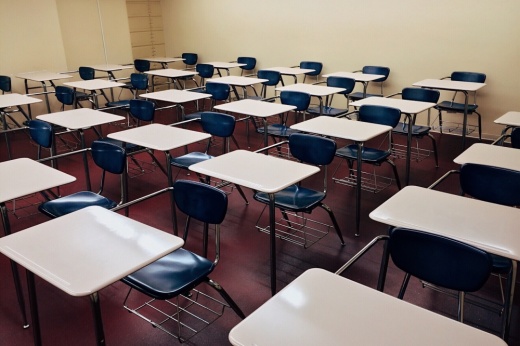To help deal with the growing problem of vaping in school districts, a new bill, House Bill 114, which will go into effect Sept. 1, changes the punishment for students caught with vape devices.
While it steepens the penalty for getting caught with a device on campus, the bill also lowers it for those with THC, which used to lead to expulsion.
The new requirements are prompting some districts to look for ways to cover the extra seats that could be needed in their respective programs.
Others are saying too much emphasis is being put on discipline rather than programs to help rehabilitate students.
House Bill 114
- Students caught with vape devices must be placed in their district’s alternative education program, also known as DAEP.
- If a DAEP is at capacity, vaping students can be placed in in-school suspension to make room for violent offenders but must be put back in if space opens up.
- Districts maintain power over how long a DAEP term lasts as well as capacity and staffing.
“I think we need to discourage kids from using these vape pens, period. These kids are old enough to understand the consequences,” said state Rep. Ed Thompson, R-Pearland.
“We had hoped for a more restorative measure [in House Bill 114]. If we don't address the root, we can’t get change,” said Melissa Igo, director of coalitions for the Bay Area Council on Drugs and Alcohol.
“On the face [the bill] is not exactly what we started out with, but it still meets the intent very well. It’s better for kids now,” Alvin ISD Assistant Superintendent Rory Gesch said.
“There aren’t enough seats in any alternative education program anywhere to house the number of students caught vaping,” said Dayna Owen, Friendswood ISD executive director of communications
By the numbers
Thompson, who authored the bill, said the goal was to give school districts flexibility in how they discipline students caught with vape pens.
The previous system required many students to go through the county alternative education program, which Thompson said was being “overrun.” The bill aims to alleviate that system.
However, several district officials are worried about running out of seats in their own DAEP programs as a result of the bill.
The approach
Pearland ISD:
- While officials called the new bill “a bit of an overreach,” the new bill is not expected to burden the district’s DAEP system, and the district will not be making changes going into the new school year. If it were to become overcrowded by the new requirements, officials said there are measures in place to manage that situation.
- Due to its growth in recent years, the district has expanded its DAEP program and this year will have it housed in a new facility that will increase its capacity from around 90 students to 150 students. Due to the new location, Gesch said he believes the district will have no issue with space needed to house additional students.
- To house its students who violate the vaping policy, the district is building an in-house alternative education program, Owen said. As a result, district officials won't use any of the allotted 30 seats in its external DAEP program for vaping. District officials can also use the new in-house program for other disciplinary instances that call for DAEP placement.





